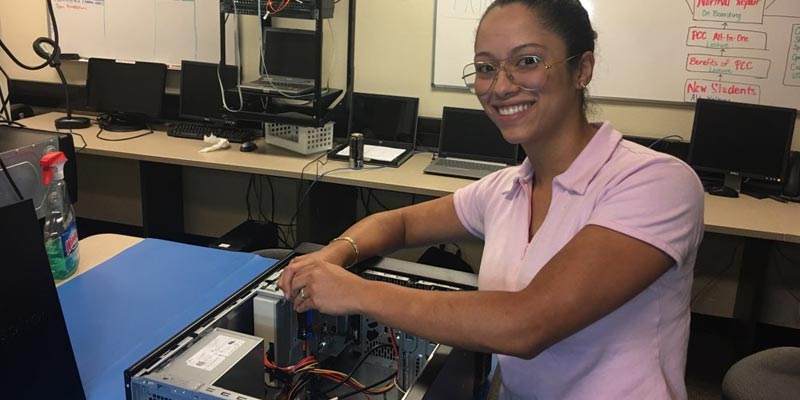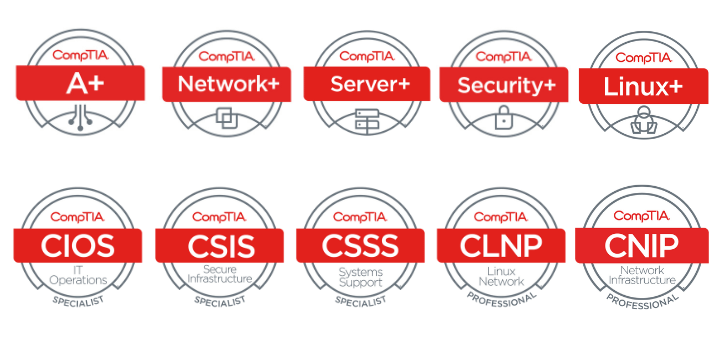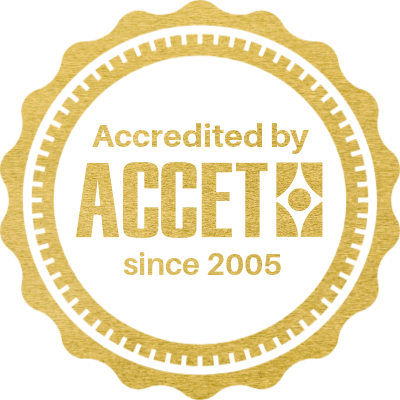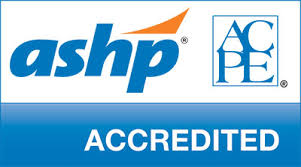Becoming a Computer Operations and Security Specialist
When you train as a Computer Operations and Security Specialist, you’ll gain the fundamental skills you need to pursue your new IT career. Upon graduation, you’ll enter the professional world with hands-on training in the following areas:
1. PC Repair and Maintenance
Train in the fundamentals of PC Repair and Maintenance and learn the skills to troubleshoot, diagnose, and fix PC hardware issues. Employers require well-rounded IT personnel who are able to not only deploy a network and fix software issues, but who can also make sure that the basic business hardware is running smoothly.
2. Networking Fundamentals
Learn the fundamentals of network setup, maintenance, and repair. You’ll be able to explain the purpose of a range of networking concepts and implement them appropriately. You’ll also know how to implement proper network policies to ensure stability and business continuity. In addition to other skills, you’ll also get trained in proper cabling and physical network storage techniques.
3. PC and Network Security
Learn the essentials of network and cybersecurity. You’ll get trained in the essential principles for network security and risk management. You’ll also be able to perform network threat analysis, configure network systems to secure applications, and understand the policies and regulations around network security.
4. Linux Operating System
We are going to break down three (of many) reasons you’ll want to learn Linux operating systems. Linux skills are important in this economy because as of May 2022, Linux, including Android, Linux has the largest installed base of all general-purpose operating systems on smartphones. Although Linux, as of November 2022, is only used on about 2.6 percent of desktop computers, the Chromebook, which runs the Linux kernel-based ChromeOS, now dominates the US K–12 education market and represents nearly 20% of sub-$300 notebook sales in the US. However, the biggest reason to learn Linux is that over 96.4% of the top 1 million web servers are on Linux operating systems. *Reference: Wikipedia 12-19-22
5. Earn five more CompTIA Stackable certifications
The PC Repair and Maintenance course, paired with the Networking Fundamentals course prepares our students for their CompTIA A+ and Network+ certifications. Together these two courses in the Infrastructure Specialist pathway can help our students earn their CompTIA IT Operations Specialist (CCIOS) credential.
Additionally, earning the CompTIA A+, Network+, and Security+ certifications helps our students break into the CompTIA Cybersecurity Career Pathway, by gaining the CompTIA Secure Infrastructure Specialist credential.
The CompTIA A+ Certification that can be earned with skills from the PC Repair and Maintenance course, paired with the CompTIA Linux+ certification will help our students achieve their CompTIA Systems Support Specialist (CSSS) credential in the Infrastructure Specialist pathway. Then climb up the Infrastructure Specialist pathway with the CompTIA Linux Network Professional upon earning your CompTIA A+ and CompTIA Linux+ certifications.
Finally, students can take their career to the next level by achieving the CompTIA CNIP (Network Infrastructure Professional) certification, which validates expertise in designing, implementing, and managing secure network infrastructure systems, further solidifying their qualifications for advanced IT and network administration roles.
Get Program Details Now!










